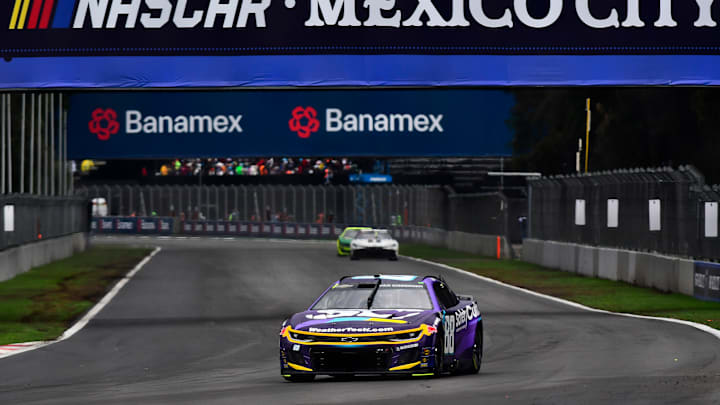For years, we've heard complaints about the NASCAR Cup Series playoff format and how it does not reward consistency. Last year's champion, Joey Logano, finished 15th in the regular season standings, and even after getting hot at the right time in the playoffs, his non-winning playoff races were below average, and he still didn't finish the season in the top 10 in total points scored.
Additionally, the full-time driver who racked up the lowest point total of the season, Harrison Burton, made the playoffs simply because he won a "wild card" superspeedway race at Daytona International Speedway toward the end of the regular season. Even that win wasn't enough to elevate him from 34th of 34 in total points scored.
And then of course, Trackhouse Racing's Shane van Gisbergen recently made the trip to Mexico sitting 33rd in the point standings, dominated at Autodromo Hermanos Rodriguez, and qualified for the playoffs himself, despite the fact that he is still only 31st in points while none of the other 11 winners so far this season sit outside the top 20.
NASCAR playoff format complaints are going to exist either way. Even if NASCAR were to get rid of the playoffs entirely, there is still the issue of stage racing, and the fact that the race winner isn't even guaranteed to score the most points would come into the discussion regarding whether or not a season-long championship format is still even feasible. But that's a subject for another day.
Bottom line, there will always be complaints and claims of "fake champion" (like there already are).
But what Burton's win and van Gisbergen's win have done is bring back to the forefront and issue that NASCAR had largely avoided since a questionable rule change was made at the end of the 2022 season.
Before the 2023 season, there was a rule that, in order for a driver's win to actually lock him into the playoffs, he needed to be inside the top 30 in the point standings. For years, fans argued that this rule should be made even stricter, perhaps top 25 or even top 20.
Instead of listening, NASCAR got rid of the rule entirely.
Some might suggest that Burton's win is a problem in and of itself, because anybody can win a superspeedway race. It really is a crapshoot, so to make that kind of a late-season win just as valuable as any other win when it comes to narrowing down the field to ultimately crown a champion rubs a lot of people the wrong way.
Fair enough. But van Gisbergen's win is arguably worse in the context of this rule having been abolished.
Trackhouse Racing literally hired van Gisbergen full-time for one reason: to win road course races. That's it. We can spend all day pretending about "oval development" and "progression" and all the other things you typically hear when announcers and media are trying to defend a struggling driver, but facts are facts.
By simply winning a road course race, which van Gisbergen has a pretty good shot of doing each year as long as there are five on the regular season calendar, he locks the No. 88 Justin Marks-owned team into the playoffs, and more importantly, into a handsome top-16 owner standings payout.
It's a brilliant strategy from the team, no doubt. But it's a strategy that would not have otherwise been employed effectively had NASCAR not foolishly removed any semblance of a performance clause from its playoff eligibility requirements three years ago.
I've said it before, and I'll say it again. The playoff format is fair in that everybody is playing by the same rules. But as this change, which was exactly the opposite of what fans wanted, has demonstrated, the format is only getting more and more "gimmicky" than what NASCAR had in a pre-"win and in" era from prior to 2014, or even a pre-playoffs era from prior to 2003.
